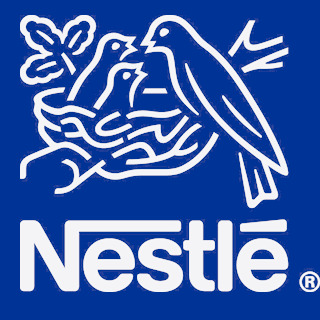By Felicia Nwosu
As global environmental challenges intensify, introducing sustainability initiatives has become imperative for companies across sectors.
Businesses now recognize that aligning with sustainable practices is essential, not only to reduce their ecological footprint but also to address the growing consumer demand for responsible operations. From reducing waste to conserving resources, these efforts contribute to a more resilient planet and foster trust among socially conscious consumers.
Nestlé Nigeria exemplifies this commitment to sustainability, consistently prioritizing initiatives that benefit the environment and local communities. Through its long-standing programs, Nestlé is making concerted efforts to embed community well-being into its operations, demonstrating that sustainability isn’t a temporary project but a core responsibility.
This is by auditing its practices and maintaining strict compliance, the company has integrated sustainable values into every facet of its business, sourcing responsibly to engaging with local stakeholders, ensuring a positive and lasting impact for future generations.
Nestlé Nigeria has long been recognized for its unwavering commitment to sustainability and environmental responsibility, consistently making strides to create a positive impact on both the planet and its communities. For decades, the company has implemented initiatives that underscore its deep-seated dedication to responsible sourcing, showcasing its transformative efforts in various sectors.
The company exemplifies how corporate responsibility can foster positive change and build a sustainable future for all, making it a trailblazer in the ongoing pursuit of a healthier planet and thriving communities.
The company’s sustainability initiatives highlight the profound effects of its efforts on local ecosystems and economies, reinforcing its vision for a sustainable future. With a clear objective of establishing a deforestation-free supply chain, Nestlé has actively collaborated with suppliers to implement sustainable agricultural practices that prioritize ecological health. This commitment not only helps combat climate change but also ensures the longevity of vital resources for future generations.
Throughout the years, Nestlé has achieved remarkable milestones in reducing its environmental footprint. The company has recorded a significant 70% reduction in water usage across its operations through innovative water-saving technologies and efficient management practices. By prioritizing water conservation, Nestlé addresses water scarcity while supporting the communities that depend on these precious resources.
In a recent discussion about the role of brands in Public-Private Partnerships (PPPs), Victoria Uwadoka, Corporate Communications and Public Affairs Manager at Nestlé Nigeria, emphasized the company’s commitment to community well-being as an integral part of its operations.
Uwadoka highlighted that Nestlé has a longstanding program designed to ensure that the benefits of its projects extend to the surrounding communities. “Our Nestlé factory in Agbara, Ogun State, has been a part of the community since 1960,” Uwadoka noted. “The land is owned by various local communities, and as a responsible corporate citizen, we fulfill our obligations. We engage in self-auditing and hold ourselves accountable beyond what is required of us by external parties.”
Moreover, in its pursuit of renewable energy, Nestlé is transitioning to 100% renewable electricity, with nearly half of its facilities already operating on clean energy. This commitment is part of a broader strategy to minimize greenhouse gas emissions and reduce the company’s overall environmental impact.
Mauricio Almeida, Managing Director of Nestlé Nigeria, emphasizes the importance of these efforts, stating, “Our long-standing commitment to sustainable sourcing reflects our desire to uplift communities and protect the environment. Every initiative we undertake is designed to create lasting value for consumers and future generations.”
Nestlé’s impact extends significantly into Nigerian communities, where its sustainability initiatives have empowered local farmers and bolstered local economies. The Cocoa Sustainability Program exemplifies this effort, providing training, resources, and support to Nigerian cocoa farmers. By promoting environmentally sound farming practices, Nestlé ensures that these farmers can thrive while protecting the ecosystems in which they operate.
Additionally, Nestlé collaborates with coffee farmers in Nigeria, guiding them toward sustainable agricultural methods that enhance productivity and livelihoods. Through these initiatives, the company has created thousands of jobs and fostered economic growth, making a tangible difference in the lives of many.
The company also monitors environmental conditions to ensure the well-being of the communities from which it sources materials. This includes assessing the impact of its sourcing practices on local ecosystems and taking proactive measures to mitigate any adverse effects.
Nestlé’s sustainability journey is further strengthened by strategic partnerships with organizations such as the International Cocoa Initiative (ICI) and the Rainforest Alliance. These collaborations extend Nestlé’s reach and effectiveness, promoting sustainable agriculture practices that benefit both the environment and the communities involved in food production.
Industry leaders recognize Nestlé’s enduring commitment to sustainability as a benchmark for the sector. Sarah Jones, Executive Director of the Sustainable Agriculture Coalition, highlights the company’s influence: “Nestlé’s decades-long dedication to sustainable sourcing exemplifies the transformative impact that responsible business practices can have on the industry. Their efforts set a high standard for others to follow.”
While Nestlé has made impressive strides, it remains vigilant in the face of challenges such as climate change, infrastructural limitations, and evolving regulatory landscapes. The company’s proactive approach to innovation and collaboration positions it to address these challenges head-on, ensuring that its sustainability initiatives remain effective and relevant.
As Nestlé continues to evolve, its legacy of sustainable sourcing and environmental stewardship will undoubtedly leave an indelible mark on the global landscape.






Comment
No comments found.